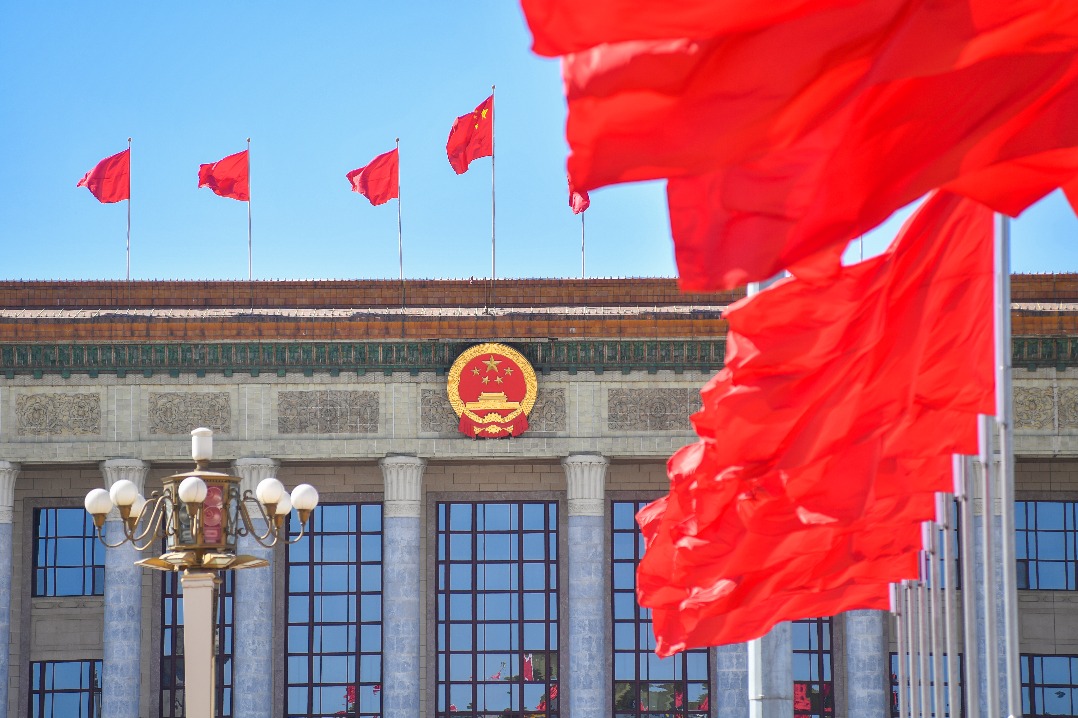75 years' progress vital for China and world





An apt model for ecological civilization
By Li Wanxin
According to the Intergovernmental Science-Policy Platform on Biodiversity and Ecosystem Services, globally 75 percent of the land surface has been significantly altered, 66 percent of the oceans are feeling the increasing cumulative impacts of climate change and human activities, with more than 85 percent of the wetlands having been lost. While the rate of forest loss has slowed down globally since 2000, this is distributed unequally.
China's Green for Grain Program is an unprecedented ecological restoration project, which is aimed at curbing forest loss. It was piloted in 1999 (on a trial basis) and implemented in the 2000s across the country. In the two decades' implementation, China has reclaimed and restored 515 million mu (more than 34 million hectares) of land for forestry and grassland. The total ecological benefits generated from the national reclamation and restoration efforts amount to 1.38 trillion yuan ($196.82 billion). Approximately 41 million farming households across the country have participated in the reclamation and restoration projects, directly benefiting 158 million farmers.
The farmers and the government have co-created reforestation programs and carried out poverty alleviation work in areas vulnerable to soil erosion. The improved terrestrial system has also increased carbon storage and reduced greenhouse gas emissions, offering a cost-effective way of mitigating climate change.
Compared with forests, water management is a more complicated affair. Water usually runs across multiple jurisdictions and requires collaborative efforts. Deliberations have been held on trans-boundary water governance to build a consensus on, and mechanisms for, incentivizing conservation and restoring water ecosystems. For instance, Zhejiang and Anhui provinces have jointly launched a pilot ecological compensation project in the Xin'an River-Qiandao Lake basin.
Deliberations have also been held by the Chinese Academy of Environmental Planning on environmental performance evaluation to avoid perverse incentives, and to build trust and stimulate learning and innovation in Yangtze River basin management.
Empowerment is imperative in using human agency to transition toward sustainable production and consumption. The government has adopted a whole-of-society approach, involving civil society as well as the public and private sectors in the joint pursuit of solutions to sustainability challenges.
Technologies have greatly expanded the human capacity to know, connect and engage with the natural and social world. They also can empower people to consider and act based on evidence accumulated across generations and vast geographical areas. Tencent is one of the forerunners in the field. It has used cutting-edge AI technology to build platforms for users to appreciate and experience natural and cultural heritages, as well as collaboration platforms, which empower the public to fulfill their needs beyond material satisfaction, and help conserve nature.
Rooted in traditional Chinese philosophy to cherish harmony between humanity and nature, China's co-creation, deliberation and empowerment model has enabled the government, research institutes, schools, philanthropists, social organizations and businesses to work together to unleash human potential to create new quality productive forces in order to build an ecological civilization. This model has contributed and will continue to contribute to global efforts such as the Paris Agreement, the 2030 Agenda for Sustainable Development, and the Kunming-Montreal Global Biodiversity Framework to protect the environment and preserve the ecology.
Li Wanxin is an associate professor at the School of Energy and Environment and Department of Public and International Affairs, City University of Hong Kong, and a visiting professor at the School of Public Policy and Management, Tsinghua University.
The views don't necessarily reflect those of China Daily.
If you have a specific expertise, or would like to share your thought about our stories, then send us your writings at opinion@chinadaily.com.cn, and comment@chinadaily.com.cn.






























